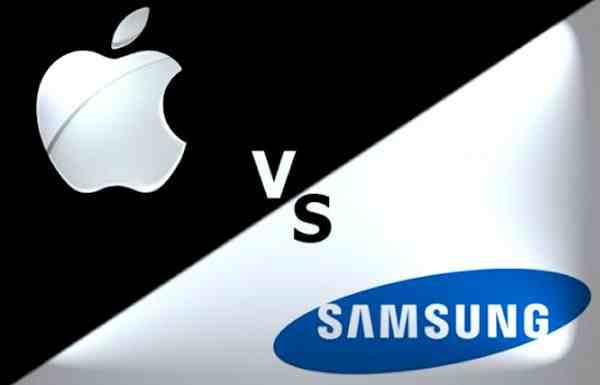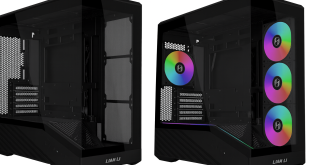Several massive tech firms including the likes of Google, Facebook, HP, Dell and eBay have all apparently sided with Samsung in its on-going patent dispute with Apple. According to a new report, the companies filed a ‘friend of the court' briefing earlier this month, speaking out against the ruling that Samsung is infringing on several Apple patents.
The report comes from Inside Sources, which notes that the group of tech giants is arguing that the ruling against Samsung would have a “devastating impact” on other companies that spend big on research and development for new technologies.
“Under the panel's reasoning, the manufacturer of a smart television containing a component that infringed any single design patent could be required to pay in damages its total profit on the entire television, no matter how insignificant the design of the infringing feature was to the manufacturer's profit or to consumer demand.”
“Software products and online platforms face similar dangers. A design patent may cover the appearance of a single feature of a graphical user interface, such as the shape of an icon. That feature – a result of a few lines out of millions of code – may appear only during a particular use of the product, on one screen display among hundreds.”
Simply put, the group of firms are arguing that smart device development is far too complex to lump all of the design elements or components in to one legal definition. This means that if a design element infringes on a patent, no matter how insignificant, it could lead to the patent holder claiming all profits generated from the device, despite how small the infringing element might be.
This is all in response to the recent US Court of Appeals ruling, which ordered Samsung to pay Apple around $538 million in damages. However, it looks like the court battle isn't over yet.
Discuss on our Facebook page, HERE.
KitGuru Says: Apple and Samsung have been butting heads in court for years now and it looks like even the other larger tech companies want the legal battles to end. It will be interesting to see how this plays out over the next few months.
 KitGuru KitGuru.net – Tech News | Hardware News | Hardware Reviews | IOS | Mobile | Gaming | Graphics Cards
KitGuru KitGuru.net – Tech News | Hardware News | Hardware Reviews | IOS | Mobile | Gaming | Graphics Cards




and after all these years of law suits from apple or samsung or any of the other major tech companies involved in law suits either defending themselves or trying to sue someone else, meanwhile the legal costs of all this is being paid for by the consumers, we buy the products! imagine if the cost of some new tech gizmo was a realistic price and not subject to having to support legal fights against other manufacturers, but that would be a perfect workd and everyone knows how big business likes a law suit! “How dare you use the same font as me in your headed paper”, this has caused millions of dollars in losses and stress to myself, I demand a ridiculous amount of money!
This isn’t simply about trying to end the feud – it’s about standing up to technology companies that will utilise patents to try and discourage competition in the market. A patent is a meant to be a recognition of your achievement and contribution, and enable and in fact encourage sharing of new technologies and ideas in a fair way that allows them to be accessible by everyone. What it’s not designed to do is give arbitrary ownership of a concept or mechanism to a given party, through which to enact anti-competitive market tactics. The last thing we want is for the IT industry to go down the same route as the Pharmaceuticals.
It seems to me there’s a very simple way to fix the patent system – when a patent is granted, determine a “reasonable maximum value” to its use, as a percentage. That way, a patent holder can charge what they want for the patent, but no more than the maximum value percentage share of the profit. If the owner cannot settle an agreement with the patent user, then the maximum percentage value is applied, and the patent holder awarded that. If there are any discrepancies, they can take it to the courts. It’s much more difficult to sue for damages if you’re already getting paid a certain “reasonable” amount of the profits, than it is in the current system, where you might be getting nothing. This would really help to curb the strangling effect of patent trolls in the industry.
The entire system for managing patents is laughably incapable of performing its’ intended duties within a software and electronics hardware environment, and the absurd idea that the entire thing is held to account globally within a single country (IE the USA) is absurdity lashed on top of absurdity
I’d slap an arbitrary time limit on any software/hardware patents; after 3 years, it’s fair game.
Whilst that may seem like a sensible idea at first glance, this is already in practice in the Pharmaceutical industry. Unfortunately, those companies have managed to side step these implementations by making slight (often trivial) modifications, and then filing a new patent, effectively prohibiting any similar enough versions of the original such that their market exclusivity is retained.
The other issue with this is whilst it could, theoretically, work quite well to regulate large, competing corporate entities, it doesn’t work well for the hobbyist inventor/unfunded start-up. To make any real kind of money in 3 years – on a scale to compete with the tech giants – is all but impossible, with the need to set up supply chains, distribution channels, establish brand name, negotiate global markets, meet safety regulations – all things that large companies can do much faster, and much cheaper. It’s also not entirely fair on the inventor – some do not have the time, the ability or even the inclination to start a big business to capitalise on their invention. To not reward because of that doesn’t seem very fair.